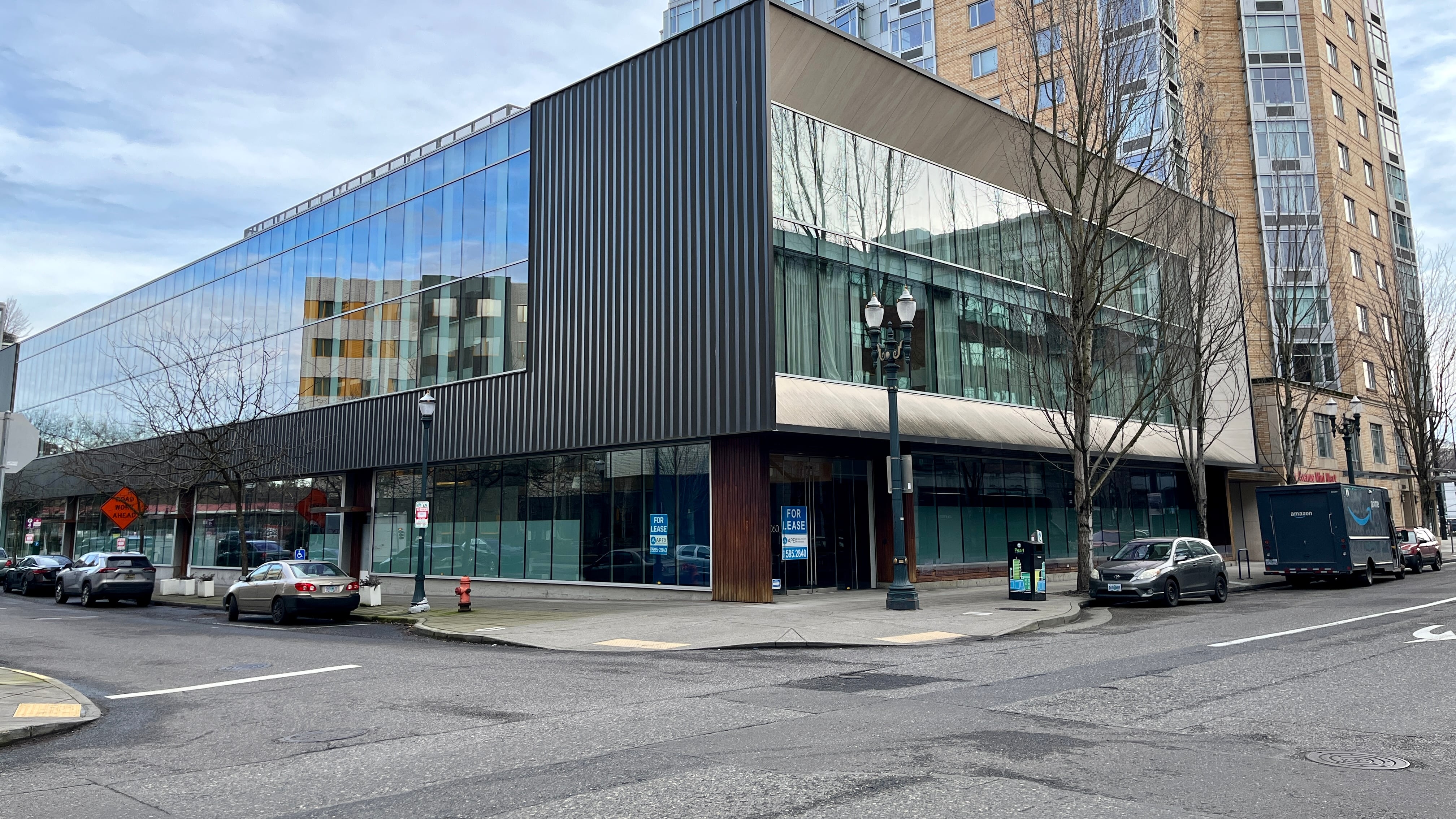“Ever since I started working, every single day of my life has been worse than the day before it. So that means that every single day that you see me, that’s the worst day of my life.”
That dark line, delivered by actor Ron Livingston in the cult movie Office Space, could also describe the Portland office market right now. Thanks to COVID, permissive work-from-home policies, high interest rates, and downtown crime, the vacancy rate stands at 32%, according to real estate firm Colliers, the highest of any major downtown office market that Colliers tracks other than Dayton, Ohio (which has a fifth as much space).
“The greater Portland office market continued its downward trajectory through 2023 and is expected to continue facing significant headwinds in the coming year,” analysts at Colliers wrote in their fourth-quarter market report. “Tenant downsizing and relocation will drive vacancy rates upward through 2024.”
Downtown Portland could hit 40% vacancy this year, Colliers says. Worst day, indeed.
When vacancies rise and rents fall, property owners often hand the keys to their buildings back to their bankers. That’s been happening in Portland for at least a year (“The Death List,” WW, Aug. 16, 2023). Now, banks are beginning to put those buildings back on the market. How long they sit there, and what they sell for, will tell city leaders a lot about whether bargain-hunting office investors see a future in Portland.
Bottom-fishers are beginning to cast about in San Francisco, another notoriously blighted West Coast city. Ian Jacobs, 47, one of the heirs to a ginormous Canadian real estate fortune built by the Reichmann family, has been raising money to buy buildings there, The Wall Street Journal reported earlier this month.
Other titans are hunting bargains in New York City, the Journal reported in another story. Ares Management, an investment fund with $420 billion to toss around, is looking to buy 3 million square feet of office space. That’s fully half the 6 million square feet that have gone vacant in Portland since the pandemic began, George Floyd was murdered, and all hell broke loose.
Time will tell if the big-money players start shopping in Portland. In case they’re reading this, here are three properties, owned by banks and fresh on the market, that they might consider:
810 NW Marshall St.
This is the former headquarters of Ziba Design, the ultra-cool Portland firm that has anthropologists on staff. Ziba designed the ReadyMop for Clorox in 2002, revived the Herbal Essence hair care brand in 2006, and redid Heinz ketchup bottles in 2012. The three-story, 77,450-square-foot trophy looks like something you’d find in Amsterdam, or Tokyo. An entity controlled by Ziba founder Sohrab Vossoughi borrowed $14.2 million from Umpqua Bank in 2018—secured by the sleek HQ he built in 2009—and fell behind on payments. Umpqua sought successfully to put the property into receivership (an alternative to foreclosure), and now the court-appointed receiver is seeking a buyer. Vossoughi spent $20 million to build the place, according to the Portland Business Journal. It could go for half that, a market watcher who declined to be named says.
334 NW 11th Ave.
Another LLC controlled by Vossoughi borrowed $1.3 million against this property, a 1925 Pearl District warehouse with 22,000 square feet of office space on three floors. It’s tech-bro friendly, having been the world headquarters of Cloudability until that Portland startup got bought by another cloud company in 2019. Umpqua Bank also sought a receiver here. Amenities include a roll-up door, seismic retrofits, and a roof deck. Close to Powell’s City of Books, too. Market value, according to Multnomah County assessors: $5.8 million.
408 SW 5th Ave.
Here stands the 10-story, ill-fated J.K. Gill Building. Built in 1923 as the flagship store of retailer J.K. Gill, the building got an award-winning renovation after new owners bought it from Multnomah County in 2018, just in time for the pandemic to hit. Surrounded on two sides by Washington Center, the vacant retail-office complex that turned into an open-air fentanyl market, the Gill had little luck attracting tenants. After the owners defaulted on a $20 million loan, First Interstate Bank of Montana asked a judge to put it into receivership in March 2023. No one showed up at an auction, so First Interstate took it onto its books for $5.8 million. Now, along with the two properties above, it’s back on the market, hoping for big hitters like Jacobs, the Reichmann heir, to bet the worst days aren’t over for Stumptown.
